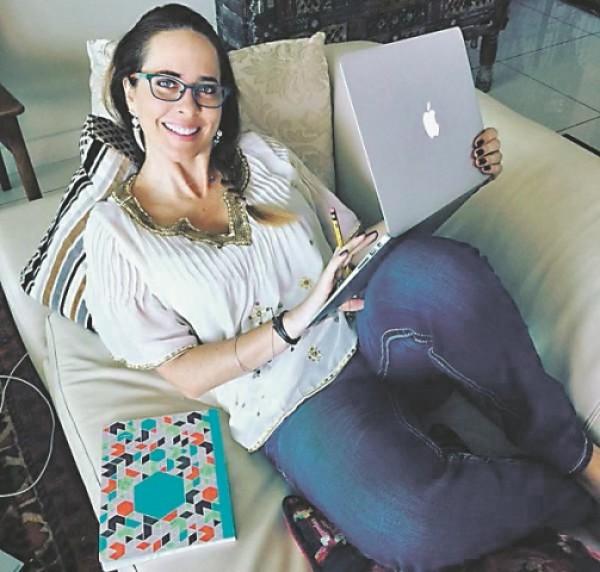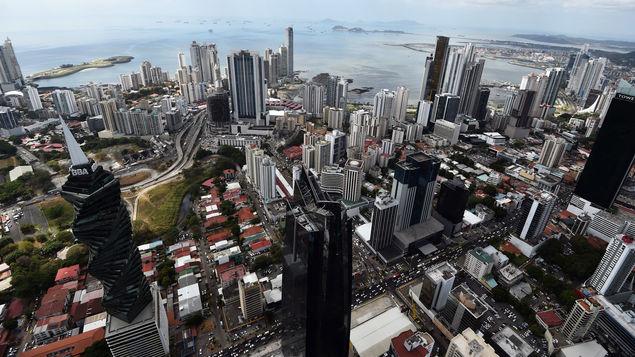
 Mossack Fonseca at UK Territories: Beneficial Owner Info to Stay Put
Mossack Fonseca at UK Territories: Beneficial Owner Info to Stay Put
On 1 and 2 December 2015, the political leaders and representatives of the UK and its 14 Overseas Territories met in London to discuss financial services, international co-operation in tax matters, beneficial ownership, and other matters.
According to a communiqué released by the UK Joint Ministerial Council, all of the Overseas Territories agreed to the following:
• A full commitment to international co-operation in tax matters, and to fight against money laundering, tax evasion, illicit finances, and corruption.
• Adherence to bilateral and multilateral agreements, implementation of the FATF standards, and enforcing legal instruments in everyday practice.
• A commitment to sustaining successful international finance centres.
• Acknowledgement of the importance of bilateral engagement on matters affecting Territories’ financial services sectors.
• Beneficial ownership information will be held in their respective jurisdictions via central registers or similarly effective systems―this is in sharp contrast to the original proposal by Britain that all such information be transmitted to a central registry located in and controlled by the UK.
They discussed the details of how the financial control and compliance systems above should be implemented, and agreed that addressing those issues would be given the highest priority and kept under continuous and close review.

 Mossack Fonseca Figuras de la televisión no quieren que le plagien sus marcas
Mossack Fonseca Figuras de la televisión no quieren que le plagien sus marcas
ML | Al estilo de las grandes estrellas de Estados Unidos, Ana Lucia Herrera, Diego de Obaldía, Delyanne Arjona, Alfonso Baysa, Ingrid de Ycaza y Jossie Jiménez, son figuras públicas que no quieren correr riesgos con los plagiadores. Todos optaron por cuidar sus marcas, patentes y derechos de autor a través de un registro en la división especializada en propiedad intelectual, de la firma Mossack Fonseca.

Source: http://metrolibre.com/Vida/figuras-de-la-television-no-quieren-que-le-plagien-sus-marcas-7e4.html

 Mossack Fonseca Firma Convenio del Programa “Mi Escuela Primero”
Mossack Fonseca Firma Convenio del Programa “Mi Escuela Primero”
Mossack Fonseca, como empresa socialmente responsable, tiene el honor de formar parte activa del Programa “Mi Escuela Primero”, que lleva el Ministerio de Educación (MEDUCA) Panamá.
Hoy se realizó la firma de este importante convenio, en el cual Mossack Fonseca se compromete a proveer al Centro Educativo Básico General El Valle los trabajos de reparación y adecuación necesarios para el correcto funcionamiento de la escuela.
Nuestros colaboradores tambien se suman a la iniciativa apoyando esta causa en beneficio de la educación en Panamá.

 Mossack Fonseca – China on IMF Admits Chinese Renminbi to SDR Basket
Mossack Fonseca – China on IMF Admits Chinese Renminbi to SDR Basket
(Mossack Fonseca) - On November 30, 2015, the International Monetary Fund (IMF) admitted China’s renminbi (RMB), also known as the Yuan, into the Special Drawing Rights (SDR) basket of currencies. Effective October 1, 2016 the RMB will be a freely usable currency and will be included in the SDR basket as a fifth currency, along with the U.S. dollar, the euro, the Japanese yen and the British pound. Launching the new SDR basket on October 1, 2016 will provide sufficient lead time for the Fund, its members and other SDR users to adjust to the change, according to an IMF press release.
The following weights have been established for each of the five currencies in the new SDR basket that will take effect on October 1, 2016:
• U.S. dollar 41.73 percent (compared with 41.9 percent at the 2010 Review)
• Euro 30.93 percent (compared with 37.4 percent at the 2010 Review)
• Chinese renminbi 10.92 percent
• Japanese yen 8.33 percent (compared with 9.4 percent at the 2010 Review)
• Pound sterling 8.09 percent (compared with 11.3 percent at the 2010 Review)
The Role of the SDR
The SDR was created by the IMF in 1969 as a supplementary international reserve asset, in the context of the Bretton Woods fixed exchange rate system. The SDR is neither a currency, nor a claim on the IMF. Rather, it is a potential claim on the freely usable currencies of IMF members. Holders of SDRs can obtain these currencies in exchange for their SDRs in two ways: first, through the arrangement of voluntary exchanges between members; and second, by the IMF designating members with strong external positions to purchase SDRs from members with weak external positions. In addition to its role as a supplementary reserve asset, the SDR serves as the unit of account of the IMF and some other international organizations.
The SDR interest rate provides the basis for calculating the interest charged to borrowing members, and the interest paid to members for the use of their resources for regular (non-concessional) IMF loans. It is also the interest paid to members on their SDR holdings and charged on their SDR allocation. The SDR interest rate is determined weekly and is based on a weighted average of representative interest rates on short-term debt instruments in the money markets of the SDR basket currencies.
Why the IMF Added the Renminbi
China is the second largest economy after the United States and is first in world trade. The renminbi is the No. 4 currency for global trade, accounting for about 2.5 percent of the total, according to SWIFT, the organization for interbank financial transfers. Beijing controls the flow of money into and out of its economy but has encouraged the use of the renminbi abroad, especially for trade, which helps Chinese exporters by eliminating the cost and risk of volatile exchange rates. Since 2009, China has signed currency swap agreements with central banks in Britain, Brazil, Canada, Indonesia, South Korea and other countries. Branches of Chinese state-owned banks in Britain, Australia, Germany, Switzerland, Russia, France and Singapore have received authorization to take deposits or settle trade-related transactions in renminbi.
Impact on Global Finance
The SDR has no direct link to financial markets or private business. Over time, the IMF decision might prompt central banks to hold more reserves in renminbi. JP Morgan economist Haibin Zhu said renminbi holdings might rise to 5 percent of global reserves, or about $350 billion, over five years. That might encourage more use of renminbi for trade and investment. "Longer term, this is a huge step", said Stephen Innes, chief trader for the currency firm OANDA in Singapore. "Once investors become more comfortable with Chinese markets, especially if they continue to progress with opening policies and make the same strides they did over the past year, international markets will really embrace Chinese capital markets".
Impact on China
Economists say the IMF decision could encourage Chinese leaders to further relax controls on the renminbi. The ruling Communist Party's latest five-year development plan says the renminbi will be "freely tradable and freely usable" by 2020. The surprise August introduction of a new mechanism for setting the government-controlled exchange rate led to 3.5 percent devaluation. However, the country's top economic official, Premier Li Keqiang, said in September that there were no plans for further declines. Some traders worry Beijing might devalue once it achieved its goal of being added to the IMF basket. But others say Chinese leaders want to be seen as reliable. The renminbi's addition is "an endorsement as an international currency", said Chen Kang, chief bond analyst for SWS Research Co. in Shanghai. "That will encourage China to adopt more measures toward accelerating the process of the opening of its foreign exchange markets and capital markets".
Unintended Consequences
The renminbi's government-set exchange rate still follows the dollar despite the new mechanism for setting its value. For now, that makes the renminbi a dollar in disguise, according to Derek Scissors of the American Enterprise Institute in Washington. Until the renminbi is allowed to trade freely, the IMF decision will "increase the dollar's importance", said Scissors. "Those governments or investors hoping for a dilution of dollar dominance for portfolio diversification or political reasons are getting exactly the opposite".

 Mossack Fonseca Careers
Mossack Fonseca Careers
Why join the Mossack Fonseca Group
Our worldwide offices embrace and encourage an international community of professionals. Our daily work with clients from more than 105 countries allows us to understand the meaning of a multicultural workspace.
Reputation
We have a reputation of efficiency and great service that we pride ourselves on. We are driven to be the best in a job that must be diligently executed every day. A good reputation is not given; it is earned in the work place every day.
Empowerment
The world is not short of good ideas, but of people who are willing to make them real. The opportunity to create and lead has shown great success amongst our staff. Not only do we feel the desire to take leadership, we give them the tools and liberty to do so.
Challenging
We actively seek individuals that want to add value and succeed. Our group favors aspiring leaders who want to work with the very best in a positive atmosphere where healthy competition is promoted.
If you are interested in becoming part of the team please submit your curriculum below. Thank you for your interest in Mossack Fonseca.

 Mossack Fonseca Panama: FATF will Review for Removal from Grey List
Mossack Fonseca Panama: FATF will Review for Removal from Grey List
The Financial Action Task Force (FATF) will conduct a "review in place" in Panama from 12-14 January 2016. A successful outcome is crucial for Panama to leave the list of non-cooperative countries with regard to the prevention of money laundering and terrorist financing. If Panama is deemed compliant with FATF standards, they will be removed from the list in February 2016.
The FATF put Panama on the list in June 2014 after an unfavourable report by the International Monetary Fund (IMF). The country then adopted an action plan that included the amendment of five laws and reporting requirements with regard to suspicious transactions.
Panama aims to pass the review which, in addition to being beneficial to their financial system, would be an extraordinary achievement in such a short period of time.

 Mossack Fonseca Panama: Moody’s Affirms Investment Grade Rating
Mossack Fonseca Panama: Moody’s Affirms Investment Grade Rating
On December 1, 2015, Moody’s Investors Service affirmed Panama’s Baa2 (investment grade) issuer and senior unsecured ratings, as well as (P) Baa2 shelf ratings. Moody’s based their rating affirmation on Panama’s continued strong economic performance and fiscal metrics that remain in line with its Baa peers.
Moody’s reported the following factors as the major drivers of their rating decision:
• GDP growth averaged 7.3% in 2012-14, which is well above the Baa group median of 2.9% during the same period
• A well-developed services sector, accounting for about 79 percent of GDP, includes services such as the Panama Canal, banking, the Colon Free Zone, insurance, container ports, and air transportation
• Panama does not rely on commodities like other regional peers, making it largely resilient to market volatility
• Panama's economic performance has been driven by infrastructure investment that amounted to 47% of GDP in 2014
• Panama's debt metrics remain below the Baa median, which stood at 40% of GDP last year
• Panama’s debt affordability, as measured by the ratio of interest payments to government revenues, is aligned with its Baa peers
Moody’s rating action report indicates that Panama’s Baa2 rating could be upgraded in 12-18 months if the government demonstrates fiscal discipline by adhering to their Social and Fiscal Responsibility Law that caps deficit spending.

 Mossack Fonseca Supports National Reforestation Day
Mossack Fonseca Supports National Reforestation Day
The Mossack Fonseca Group recently planted over 1,000 seedlings in Camino de Cruces National Park as a part of National Reforestation Day and the “Alliance for a Million.”
Panama City, Panama – November 25, 2015 /PressCable/ —
Taking a more proactive approach to the issues associated with global climate change, the Mossack Fonseca Group offered its support for the reforestation efforts adopted by Panama and much of the rest of Central America through its participation in National Reforestation Day. Recognizing the importance of the role trees play in the recovery of degraded soils, the protection of the water supply, the absorption of carbon and the emission of oxygen, the planting of a wide variety of tree species on such a grand scale is a highly beneficial measure for further protecting the environment from the potentially devastating effects of unchecked climate change.
The firm has a long history of environmental consciousness and has frequently participated in projects similar to the reforestation efforts taking place in Panama. In this particular instance, a large contingent represented the Mossfon Family at Camino de Cruces National Park to take part in the “Alliance for a Million” project undertaken by ANCON. In planting over 1,000 young seedlings throughout the park, members of the firm were able to assist ANCON as it seeks to achieve its lofty goal of stimulating the growth of forest and fruit species across 1 million hectares. With a focus on targeting the areas with the most pressing need for regrowth, members of the firm helped to ensure that forest management areas, river banks, natural forest areas and groundwater recharge zones benefited from the immediate attention.
Those participating in National Reforestation Day surely understand the impact that deforestation has had on the world at large, but Central Americans in particular are acutely aware of the consequences that have been wrought throughout the region. Over the last 40 years alone, 40 percent of the rain forests have been cleared or burned, affecting the region’s ecological balance to a significant degree. Deforestation has affected air quality, caused soil instability and endangered the 80 percent of terrestrial life that calls the forest home. Given the pervasive and accelerated nature of climate change, efforts such as the one undertaken by ANCON and the firm are necessary for ensuring future environmental stability.
About the Firm The Mossack Fonseca Group is a firm that provides exceptional legal, trust and investment consultancy to clients across the globe. Founded in 1977, the firm offers comprehensive services across every continent, specializing in international business structures, commercial law, wealth management and trust services.
For more information about us, please visit http://www.mossfon.com
Contact Info:
Name: Mossack Fonseca
Organization: Mossack Fonseca
Address: 54th Street, Marbella, Panama
Phone: 507-205-5888

 Mossack Fonseca: Jersey Targeting New Finance Sector Opportunities
Mossack Fonseca: Jersey Targeting New Finance Sector Opportunities

Mossack Fonseca - Jersey is "the right place with the right people" to establish itself as the go-to location for innovative global banking, a recent event hosted by Jersey Finance heard.
Hugh Harper, a Partner at EY, delivered the keynote address at Jersey Finance's Annual Review breakfast event on January 28. Harper took the opportunity to discuss new research that outlines the potential for Jersey to adopt a new approach to banking. Citing the cooperation between Jersey's finance industry, regulator, and government, combined with the jurisdiction's unique advantage of a stable banking sector, he outlined how Jersey's commitment to a digital economy could help it create a sustainable, highly digitized banking model. The full 'Future of Banking' report is expected to be finalized by the second quarter of this year.
During an introduction to the event, Geoff Cook, the CEO of Jersey Finance, described 2015 as another solid year for the finance industry, highlighting the upward trend in industry employment. He highlighted ongoing efforts to differentiate Jersey from other international financial centers, stating: "We remain focused on strengthening Jersey's competitive position through innovation and research and, alongside the major Future of Banking project to be finalized this year, we will be producing a new report entitled 'Jersey's Value to Europe', which will clarify Jersey's role in contributing to jobs and growth within the EU. A new piece of work to clarify the finance industry's contribution to the local Jersey economy will be completed too."
"The growth we have seen across our funds, private wealth and capital markets sectors, together with the investment we are making in diversifying and enhancing our banking platform, stands us in very good stead, and we are seeing growing interest from fund managers and family offices in establishing a presence in Jersey. All this is filtering through to the local economy, with firms in the industry predicting a rise in employment for local people over the coming year and the industry recruiting more local students than ever before."
"There will always be regulatory, market, and political challenges but the quality and diversity of Jersey's finance industry positions us very strongly indeed."

 Mossack Fonseca: GAFI saca de lista gris a Panamá
Mossack Fonseca: GAFI saca de lista gris a Panamá

Mossack Fonseca - El Grupo de Acción Financiera (GAFI) autorizó la salida de Panamá de su lista gris, en la que había sido incluida desde junio de 2014. Así lo informó este jueves el ministro de Economía y Finanzas, Dulcidio De La Guardia a través de su cuenta de Twitter.
Una delegación de Panamá, encabezada por De La Guardia, se encuentra en Francia participando en la plenaria del GAFI, que culmina este viernes 19.
El titular del MEF calificó la decisión como un "triunfo" para Panamá, destacando el trabajo conjunto del sector público y privado. "Esto permitió la aprobación y aplicación de una nueva regulación que coloca a Panamá a la vanguardia en materia de la lucha contra el blanqueo de capitales", expresó.
A principios de año, un equipo técnico del GAFI realizó una visita de tres días a Panamá para verificar el "in situ", el cumplimiento de las normas contra el blanqueo de capitales,
financiamiento de terrorismo y la proliferación de armas de destrucción masiva.
Entre las medidas implementadas por el Gobierno de Panamá se encuentra la creación de la Intendencia de Regulación y Supervisión de Sujetos No Financieros, y la reglamentación de la Ley 23, que adopta medidas para prevenir el blanqueo de capitales.
El Grupo Revisor debía presentar un informe con los resultados durante la plenaria.
Customer support service by UserEcho

